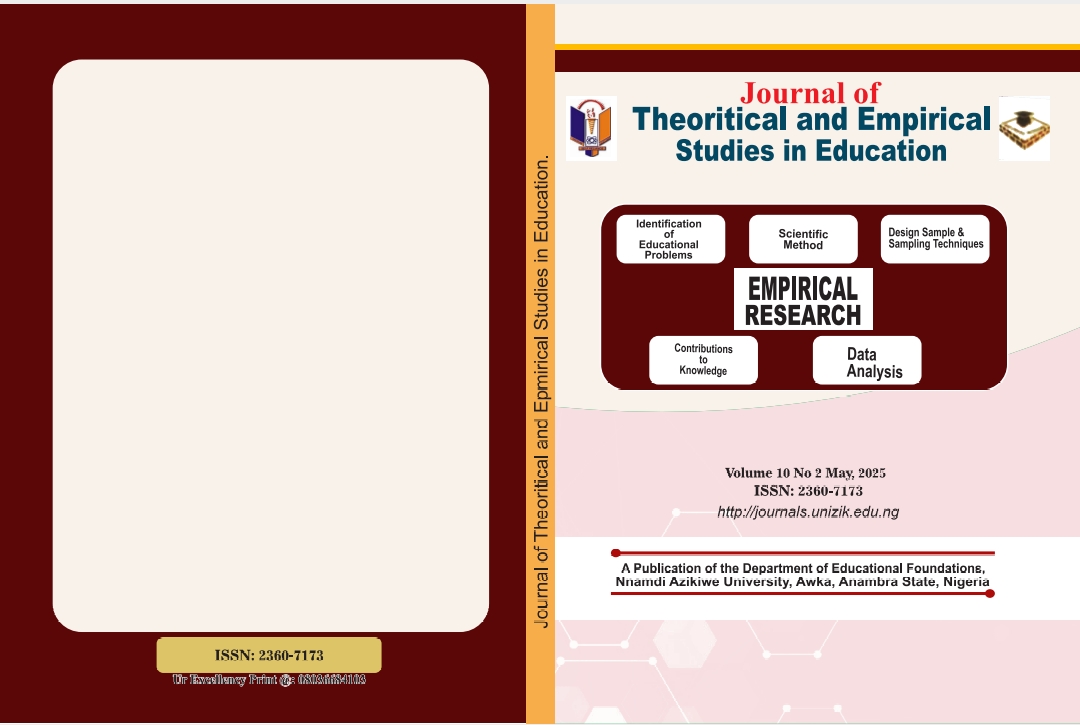INFLUENCE OF CROSS-CULTURAL BELIEFS ON CHOICE OF MARRIAGE PARTNER AMONG GRADUATING STUDENTS OF ADEKUNLE AJASIN UNIVERSITY AKUNGBA-AKOKO, ONDO STATE, NIGERIA.
Keywords:
Cross-cultural beliefs, marriage choice, graduating students, Cultural diversity.Abstract
This study examined the influence of cross-cultural beliefs on the choice of
marriage partner among graduating students of Adekunle Ajasin University,
Akungba-Akoko, Ondo State. In the context of Nigeria's extensive cultural
diversity, the research seeks to understand how cultural interactions shape
students' marital decisions, and how exposure to different cultures during
university life impacts their choices. The study is significant as it provides
insights for university management, government, and stakeholders to better
support students in navigating these complex decisions. A descriptive research
design of the survey type was used and a sample of 100 students were randomly
selected from the population, with data collected through a validated structured
questionnaire titled Cross-Cultural Barriers to Choice of Marriage Partner Scale
(CCBCMPS). The analysis involved descriptive statistics, including frequency
counts, percentages, means, and standard deviations, as well as inferential
statistics to test the research hypothesis. The findings reveal that cross-cultural
beliefs significantly influence the choice of marriage partner, (x= 3.60 and a SD
= 0.643). These beliefs also contribute to a negative mindset towards cross
cultural marriages among students, highlighting the challenges of navigating
cultural diversity in personal decisions. The study concludes that cross-cultural
beliefs are a crucial factor in students' marriage choices, often leading to
resistance against cross-cultural unions despite exposure to diverse cultural
perspectives. To address this, the study recommends the implementation of cross
cultural sensitivity programs, engagement with families and communities,
reorientation training, and strengthened counseling services. It also calls for
further research on cross-cultural relationships and their impact on students, as
well as initiatives to promote cultural diversity and support for cross-cultural
marriages.




